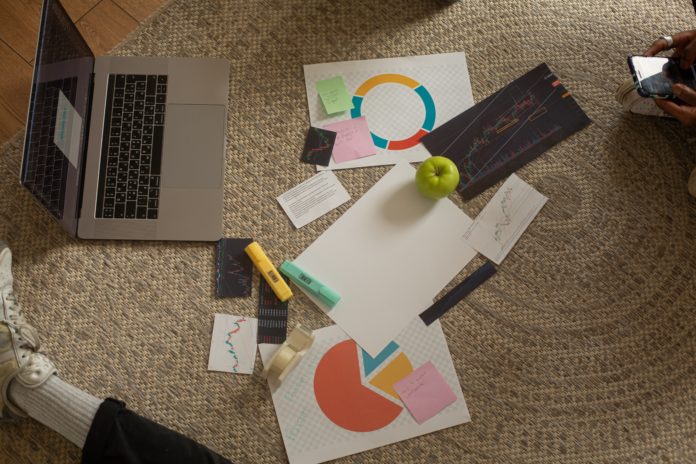Pitik, founded in 2019, is an Indonesian company that harnesses the power of data and technology to empower Indonesian chicken farmers, allowing them to achieve better quality poultry and thereby generating more income. Like many SMEs and startups, they faced an issue obtaining the necessary financing to support their investments.
Enter Dompet Kilat, a peer-to-peer (P2P) lending company that aims to provide solutions that can fulfil the financial goals of both borrowers and lenders, and close the financial inclusion gap to push Indonesia’s economy forward.
SMEhorizon spoke with Arief Witjaksono, CEO, Pitik, and Sunu Widyatmoko, Co-founder, Dompet Kilat, on the specific issues faced by SMEs and small scale poultry farmers in Indonesia, and how technology and innovative financial solutions can help realise the potential within them.
Building connections for development with technology
Indonesia’s SME sector according to Sunu, is the backbone of Indonesia’s economy, contributing 61% of the national economic grown and absorbing up to 97% of total employment.
“Here, many startups are founded to create a digital ecosystem that further connects existing SMEs with the larger businesses ecosystem.
“For instance, merchants and brick & mortars are connected to e-commerce, drivers and merchants are connected to ride hailing and supply chain ecosystems. Now, shops offering digital payments are examples of SMEs starting to embrace digital technology.”
What makes Indonesia’s position unique, according to Sunu, is that the changes are happening on a large scale, given that Indonesia has having the fifth largest population in the world spread out across thousands of islands.
Pitik is one of the startups that perform the functions of integrating existing SMEs with the larger business ecosystems. With one of their founders already in the corporate poultry sector and familiar with the inefficiencies in the value chain, the team behind Pitik believes that technology can help to solve many of the inefficiencies its value chain.
To this end, innovations such as IoT, AI driven farm algorithms and digital apps support local farmers with better rearing practices, while data-driven analysis helps to ensure access to farm supplies, financing, and sales contracts remain fair and aligned with the priorities of all parties.
While all these suggest a great potential for growth, one gap is the lack of provision of the working capital required by SMEs. “Many fintech players are eyeing the opportunities presented by the 100 billion USD credit gap faced by SMEs,” said Sunu. “It is natural for businesses to grow. But in order to grow, they require loans to support their investments.
“As banks are not able to provide financing to SMEs, this provides opportunities for fintech lending to bridge the financial inclusion gap.
“Currently, there is a credit gap of 100 billion USD which is needed by SMEs, but they cannot be fulfilled by the existing financial institutions (based on ADB and World Bank reports),” he elaborated.
Dompet Kilat bridges this gap through P2P lending, a system which enables individuals to obtain loans directly from other individuals. Currently, says Sunu, the Financial Services Authority of Indonesia considers this a platform to matchmake potential lenders with potential borrowers, and, at time of writing, does not intend to regulate it directly. For Dompet Kilat itself, as an early adopter of P2P lending in Indonesia, the principle, said Sunu, is to strongly object to business practices that resemble loan sharks. “P2P lenders are not interested in high yield gains,” he added. “Instead, we work towards a balance between risk and return.”
As Arief recalled, working with Dompet Kilat has enabled Pitik to scale-up their business faster by providing working capital (invoice financing) for the purchase of feed, vitamins, and some employee loans.
In particular, he appreciated the speed and transparency of the process “It enabled us to scale up, which is critical in this industry where the prices of live birds fluctuate greatly from day to day. And also we do not need to provide collateral unlike traditional banking.”
Stronger cooperation to weather the pandemic
Indonesia has been hard hit by the COVID-19 pandemic. Discussing the poultry industry, Arief explained that with the closure of restaurants and malls during lockdown measures, the demand for chicken decreased. “This is especially bad for the farmers who endured low live bird prices which caused them huge losses,” he added.
While acknowledging the difficulties across the wider SME sector, Sunu notes that despite it all, businesses continue to evolve in order to survive and grow. “Many businesses are now participating in the e-commerce boom due to the lockdowns where physical interactions were limited,” he said. “SMEs who embrace digital technology in their businesses are the ones that will grow faster than those without digital capabilities.”
Technology seems poised to enable connections between local, small scale actors – such as business owners and poultry farmers – as well as with the larger, traditional institutions that have hitherto underserved them. Echoing Sunu’s optimism, Arief also sees the potential for an upward trajectory. “Especially with the help of technologies, these small businesses are able to thrive,” he said.
“We are only at the beginning of the digital era, and there is definitely more to come from this sector.”
.














